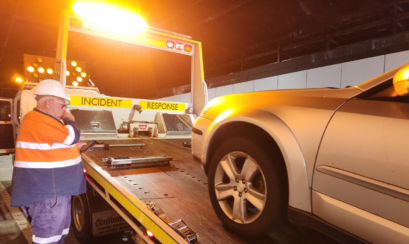Dying without a will can lead to many problems for your loved ones in dealing with your estate and distributing your assets. It can be especially problematic if the person who dies without a will had a de facto, as well as children from a previous relationship.
What is a will?
A will is a document that specifies who receives your assets when you die.
It deals with your assets and liabilities, including any land, bank accounts, vehicles, personal items, shares and so forth – but does not bind a trustee of any trusts you may have set up, including your superannuation fund.
Superannuation and death benefits in wills
Normally, a will cannot dictate who your superannuation trustee pays your superannuation or death benefit to.
If you want your superannuation and death benefit to be paid to a particular person, you must sign and have witnessed a Binding Death Nomination and provide it to your superannuation company.
These Binding Death Nominations do lapse, so you will be required to continue to sign and update them over the years.
Dying without a will in NSW
If someone dies without a will in NSW, normally the Succession Act (2006) is invoked. The Succession Act specifies who the deceased person’s assets will be gifted to.
For example, if a person dies without a will and leaves a surviving spouse or partner (by marriage or de facto), and that partner and the deceased have children together and there are no other children from previous relationships, then that partner receives the whole of the estate (but not necessarily the superannuation, as explained above).
If the deceased person leaves a spouse but no children at all, then the spouse inherits the whole of the estate. In these cases, the spouse normally applies for the Supreme Court grant called “Letters of Administration” (rather than probate, which relates to a will).
Usually, these matters are straightforward, unless there is another surviving de facto. The Succession Act does not recognise two de facto partners, and often the problem is that one of the de facto partners does not accept that the other was in a relationship with the deceased.
Unless a negotiated agreement can be reached, the matter proceeds to a hearing in the Supreme Court, which will decide whether there were one or two de facto relationships, based on evidence provided by both parties.
Dying without a will, with children from a previous relationship
Probate lawyers are seeing a trend of young men dying without a will, leaving a de facto with or without children, as well as leaving behind children from previous relationships.
This creates “standing” and “consent” issues to apply for the grant of Letters of Administration.
Normally, a person has standing to apply for the grant of Letters of Administration if they are the spouse, the de facto, or will benefit from the estate, like a child.
However, where there is a de facto – with no children from that relationship – but the deceased had children from other relationships, the court requires the de facto to obtain the consent from the children. If the children are under 18 years of age, the children’s parent must consent on their behalf.
This usually creates problems. Under the Succession Act, the surviving de facto (the one who had no children with the deceased, in a situation where the deceased has children from one or more previous relationships) is entitled to a Statutory Legacy, and then the balance of the estate goes to the children.
How is the Statutory Legacy calculated?
The Statutory Legacy is calculated according to the following equation.
R = A x (C/D)
where “R” represents the CPI-adjusted Statutory Legacy.
“A” is $350,000.
“C” represents the Consumer Price Index number for the last quarter for which such a number was published before the date on which the intestate died (that is, the person who died without a will).
“D” represents the Consumer Price Index number for the December 2005 quarter.
In many cases, the estate does not have $350,000 in it. In these situations, the de facto receives the whole of the estate, leaving the children without any inheritance.
The parent or parents of the children from previous relationships often do not agree to the formula, as they are concerned that their children receive nothing from the estate, and so they do not consent to the de facto applying for the grant of Letters of Administration.
What happens if you cannot obtain consent to apply for Letters of Administration?
Sometimes, where an applicant cannot obtain consent from others, they can provide sureties or guarantees by third parties to ensure that the applicant properly administers the estate.
The third party is required to guarantee to the court that if the applicant mishandles the money, they will pay to the court the amount of money that was mishandled.
It is very onerous, and few people agree to be the guarantor.
This creates a void, where the estate will never be administered because the parties cannot agree. In this situation a negotiated settlement may be the best outcome.
How superannuation is paid if you die without a will
In some cases, young men are dying without a will, leaving little in their estate except debt, but leaving a large superannuation account and death benefit.
However, as mentioned above, the NSW Succession Act does not dictate to the superannuation trustee who to pay that money to. If the deceased left a Binding Death Nomination, the money will be paid to the person or persons nominated.
However, the deceased almost never leaves a Binding Death Nomination. In that case, the dependants and children of the deceased need to apply directly to the superannuation company for the payment.
They must present their case and prove that they were dependent on the deceased. The superannuation company will investigate any other person who may be entitled to be paid the money as a dependant.
The superannuation company then makes a decision and pays the money.
Sometimes, if there is ongoing dispute, the superannuation trustee may pay the money to the estate. In these cases, someone is required to apply for Letters of Administration to be administrator of the estate, and then distribute the superannuation money in accordance with the Succession Act.
If the money is less than $350,000, the same problem will occur, where the de facto wishes to apply for Letters of Administration, but the parent of the children of the previous relationship does not consent, because their children are not receiving anything.
Again, in these circumstances, a negotiated settlement would be the best outcome. (For more information please see Where does my superannuation go when I die?)
Are you an adult? Make a will
Under Australian law, any person who is 18 years of age or older is entitled to make a will.
Speaking as a lawyer who has seen firsthand the chaos and bitterness that can result from intestacy, I can’t help wishing that young Australians regarded making a will as a rite of passage, just as much as attending schoolies week or deciding what to do in a gap year.
But perhaps it is optimistic to hope for such selfless actions from 18-year-olds.
Certainly if you’ve reached the point in life where you have a baby and you haven’t made a will yet, it’s time to do that simple but important thing.
It’s really not worth dying without a will, because whatever you accumulated in your lifetime could be left in limbo after your death, if a stalemate between your former partners cannot be resolved.
Dying without a will means all your assets could ultimately be scooped up and handed over to the state government – or, via your super fund to unclaimed money, which is probably not what you intended.














